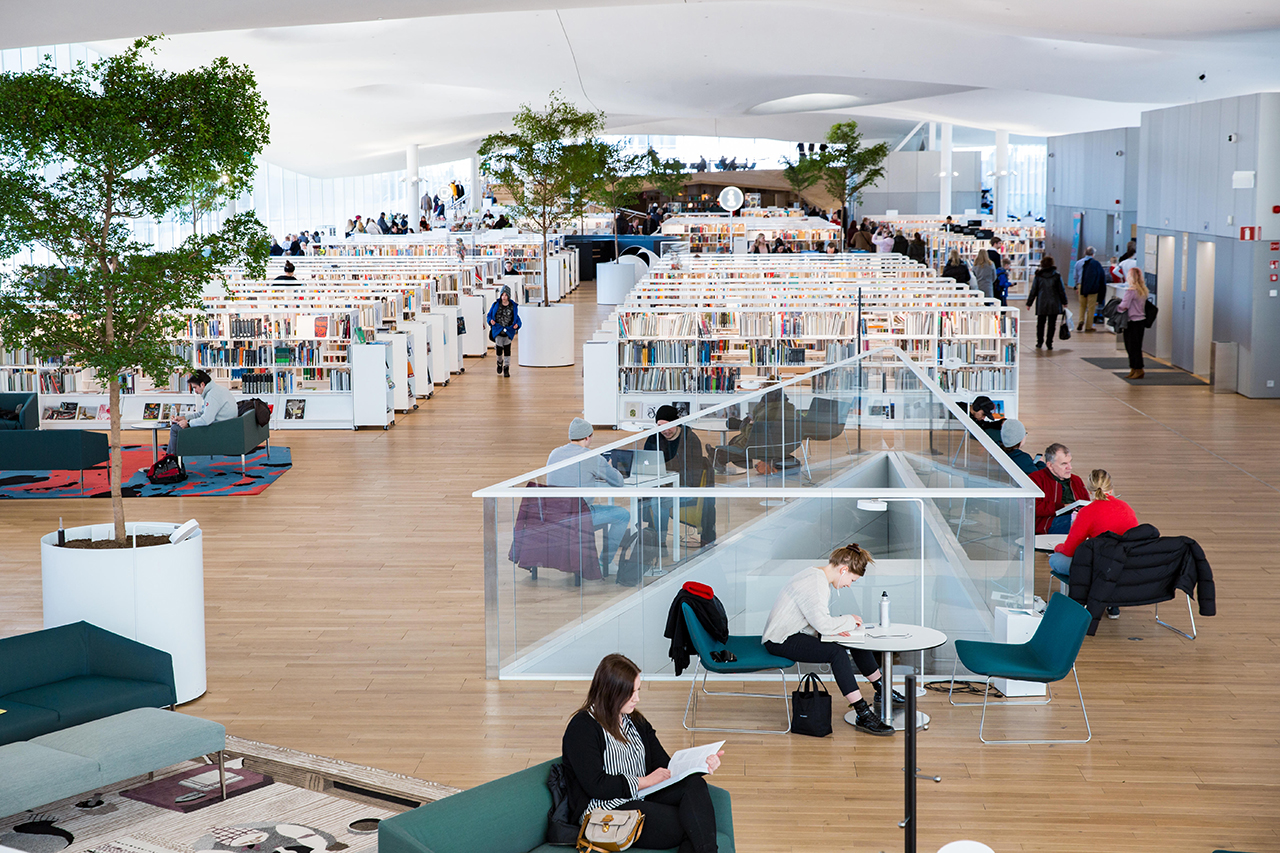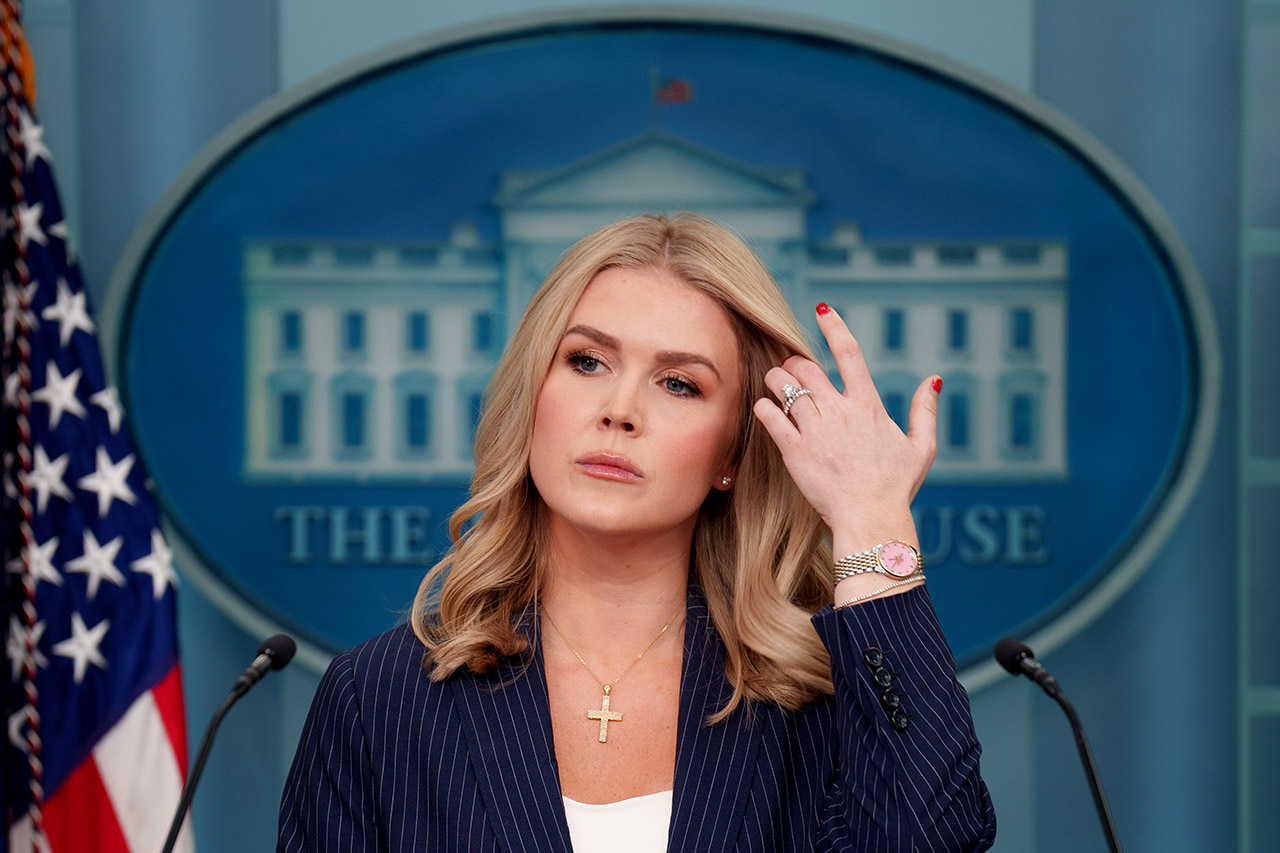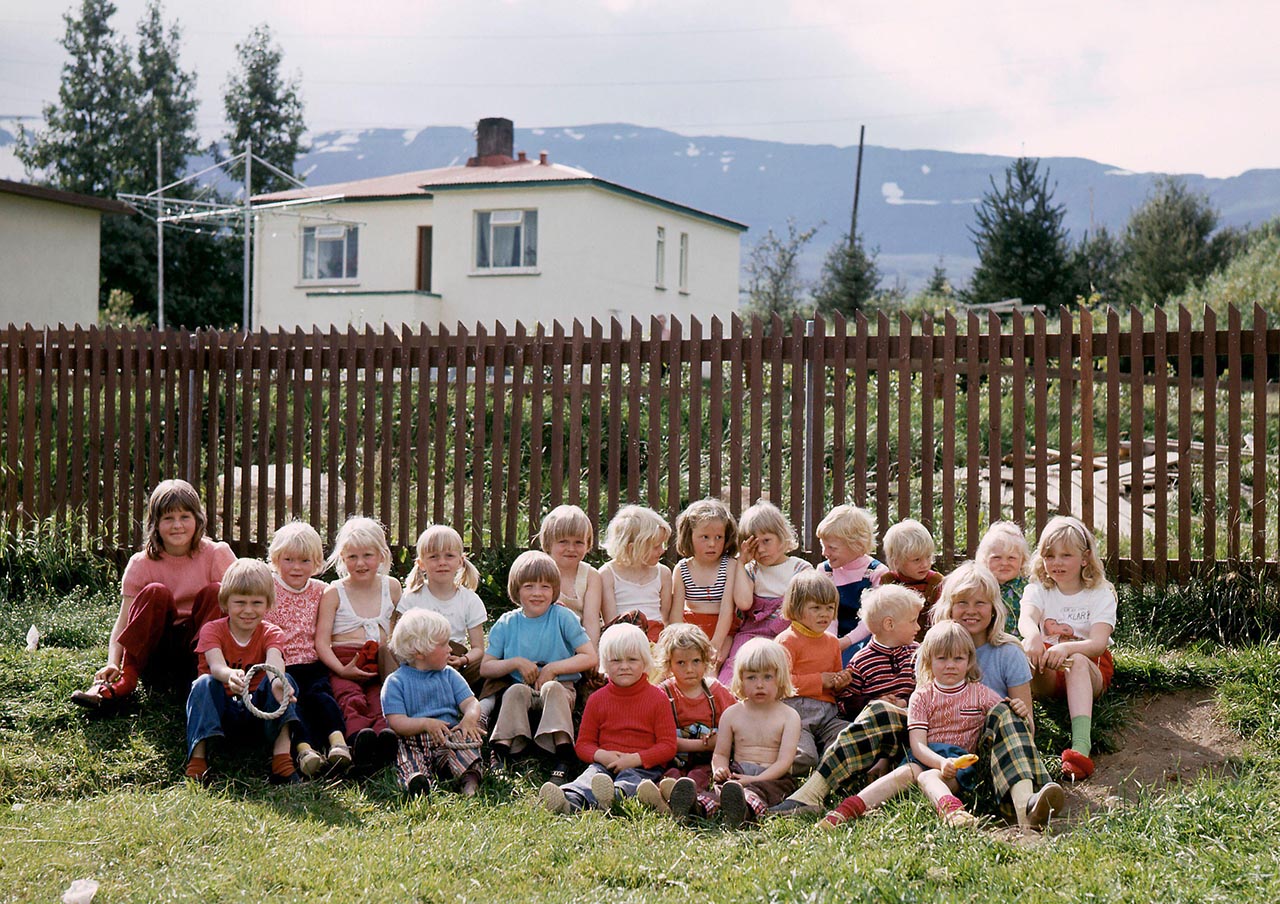Getting to know Trump’s press secretary, Labour and Wait’s new London shop and Iceland breaks down gender stereotypes.
|
Tuesday 25/11/25
|

|
|
London
Paris
Zürich
Milan
Bangkok
Tokyo
Toronto
|
|
|
|

Good morning. The Monocle Christmas Markets return with six stops on our winter circuit. Join us in London, Zürich, Tokyo, Hong Kong, Paris and Toronto for good cheer, gifts from our favourite brands and makers, and a warm welcome from the Monocle crew. Here are the upcoming dates, with more information available here.
Saturday 29 – Sunday 30 November: Zürich
Saturday 6 – Sunday 7 December: Paris, Toronto and Tokyo
Saturday 13 – Sunday 14 December: London and Hong Kong
For now, here’s what’s coming up in today’s Monocle Minute:
THE OPINION: What can Finland’s media literacy teach us?
FROM MONOCLE.COM: Getting to know Trump’s press secretary Karoline Leavitt
DAILY TREAT: Well-crafted wares at Labour and Wait’s new London shop
IN PRINT: How Iceland breaks down gender stereotypes
|
|
What other countries can learn from Finland’s world-beating media literacy
By Alexis Self
|

|
Finland claiming the top spot in the Open Society Foundations’ annual Media Literacy Index has become an inevitability. The Nordic nation has placed first every year since 2017, when the list – which compares 41 countries based on things such as resistance to fake news and trust in media institutions – was launched. As with its stellar performances in other indexes (most famously the World Happiness Report), Finland’s media-literacy success is the subject of hand-wringing enquiry on the part of less happy and more distrustful countries.
Some of the qualities that Finland possesses are impossible to replicate elsewhere. Its small, culturally homogeneous population fosters a great sense of unity, while the complex Finnish language (which even other Nordic peoples often struggle to understand) makes it difficult for foreign actors to spread false information. The country’s modern history – which has involved two wars against its former colonial master, Russia, followed by decades of Moscow-approved neutrality – has also engendered a deep appreciation of democracy, coupled with a heightened awareness of the threats posed to it.
Still, there are other things that Finland does that can and should be imitated. Among these is education. Finns are taught media literacy almost as soon as they begin formal learning. These lessons come not through a media-studies course but a cross-curriculum effort that involves, for example, looking at the manipulation of statistics in mathematics, images in art, propaganda in history and language in Finnish.

Reading between the lines: Helsinki’s Central Library
The government has funded media-literacy programmes since the 1950s but the current model was only implemented in 2016, following elections in which there was an increase in Russian-led destabilisation efforts. Much of the country’s institutional bulwark against false information is also relatively new – including Faktabaari, a fact-checking NGO launched in 2014 that confirms or dispels stories that go viral. In 2023 it exposed false claims made in Arabic that social services were abducting children to sell them for profit across Nordic countries.
The work of Faktabaari and similar organisations is helped by the fact that Finns maintain high or moderately high levels of trust in both their government (47 per cent, according to an OECD report, against an average of 39 per cent) and traditional media. The country has managed to avoid the obliteration of its regional press and its public broadcaster, Yle, reaches 94 per cent of Finns a week across TV, radio and online. This trust comes not only from those natural advantages mentioned above but as a self-fulfilling consequence of continuous and open debate.
Then there’s the other half of the puzzle: literacy. Finland’s 5.5-million-strong population borrows close to 68 million books per year from its network of well-funded libraries. It is in these buildings, found in every decently sized settlement across the land, that older citizens are also taught classes geared towards things such as how to identify social-media bots and deepfakes. By contrast, about 40 public libraries in the UK are closing per year, while many of those that remain resemble the final scene of a particularly depressing Samuel Beckett play.
Maybe the Finns’ greatest asset in the fight against false information is a philosophical one. At a time of growing polarisation, Finland is a society that knows what it stands for, which means that it doesn’t have to define itself by who or what it stands against. The promotion of the rule of law, gender equality and media literacy comes not just in the form of clear rhetoric (which is important) but also through well-funded, creative policies.
In recent years, other countries have been trying to catch up. Germany has passed a law that fines social-media platforms that fail to remove hate speech, while France has sought to enforce greater content moderation during election campaigns. But the protean nature of fake news requires a level of urgency that is mostly absent elsewhere. The Anglophone world, for example, seems hopelessly adrift in a sea of mis- and disinformation. Much is made of Big Tech’s responsibility to police the misuse of its platforms but these companies have been neutered since Donald Trump’s re-election and, anyway, can such a powerful industry be trusted to properly regulate itself? While we all approach an uncertain future, the Finns, at least, have faith that their leaders and media companies will protect them and tell the truth.
Alexis Self is Monocle’s foreign editor. For more opinion, analysis and insight, subscribe to Monocle today.
|
|
EDO TOKYO KIRARI  MONOCLE MONOCLE
|
|
FROM MONOCLE.COM: USA
Who is Karoline Leavitt, the youngest-ever White House press secretary?
When a reporter asked Donald Trump a tricky question related to the US cost-of-living crisis earlier this month, the president knew exactly who to turn to: his press secretary, Karoline Leavitt, who happily obliged with a full-throttle defence of the president’s economic record (writes Charlotte McDonald-Gibson). So devoted did she seem to her boss’s cause that Trump’s visiting dignitary that day – Hungary’s prime minister, Viktor Orbán – quipped that he would like to hire her.

Upper hand: Karoline Leavitt
With Maga-blonde locks and an angelic face that can instantly transform into the glare of a loyal attack dog, Leavitt has become one of the most recognisable figures of Trump’s second administration. Utterly committed to the Make America Great Again cause, the 28-year-old is the youngest person in US history to step up to the White House press podium – and is arguably one of its best. She is quick-witted with a pitch-perfect grasp of her commander-in-chief’s messaging and appears to share his deep disdain for many of the reporters who she goes into daily battle with.
Among the long line of presidential press secretaries, few have captured the world’s attention quite like Leavitt. To read why, click here.
|
|
• • • • • DAILY TREAT • • • • •
Pick up some chic utilitarian goods at Labour and Wait’s new London shop
London-based retailer Labour and Wait – known for its classic household goods, clothing and tools – is marking its 25th anniversary with a shiny new spot in Covent Garden. The brand’s third outpost in the UK capital is in a mid-19th-century building that was once used as a seed merchant’s warehouse.
We suggest picking up a Guernsey-made navy sweater, a svelte black Peugeot pepper mill or a red notebook from British brand Silvine Originals. Labour and Wait has gracefully stood the test of time, championing functional design and well-crafted household goods for a quarter of a century.
labourandwait.co.uk
|
|
|
Sponsored by Edo Tokyo Kirari
|
|
|
|
|
|
in print: iceland
How Iceland is challenging gender stereotypes through education
Finland isn’t the only Nordic country doing things differently (writes Jacob Judah). Still, if you had to name a nation that’s home to a network of schools practising strict gender segregation, your answer would probably not be Iceland. The country, which has been ranked first in the World Economic Forum’s Global Gender Gap Index for 16 consecutive years, currently has a female president, prime minister, head bishop and chief of police.

Child’s play: Iceland breaks down gender stereotypes
But it is also the birthplace of the Hjalli model, an education system that is attempting to break down gender stereotypes among preschoolers by teaching girls to be more “masculine” and boys to be more “feminine”. While the rest of the world argues over defining gender, Iceland has achieved world-leading equality on terms that everyone understands.
Want to know more? For the latest issue of Monocle, we went to Iceland to learn more about the Hjalli model. Read the story here.
|
|
| | |